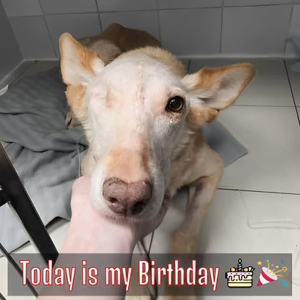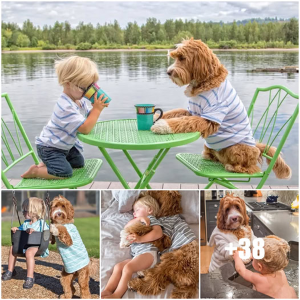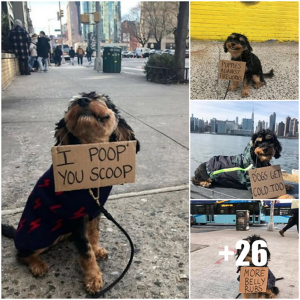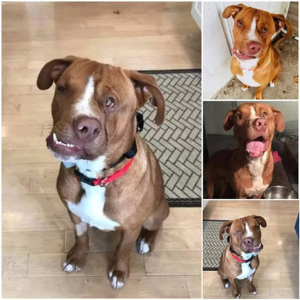Phu Quoc dogs are considered “royal dogs” because they were raised by King Gia Long and followed him throughout his years of exile. In the book “Nguyen Phuc family genealogy”, a family heirloom that records and explains all matters related to the royal family, it is clearly stated that four Phu Quoc dogs saved King Gia Long from death twice before ascending the throne. They rescued him from the Tay Son army and protected him from danger.
Information about the origin of Phu Quoc dogs is still unclear. According to Associate Professor, Dr. Pham Cong Hoat, Head of the Department of Agricultural Science and Technology, Department of Science and Technology for Economic and Technical Sectors, Ministry of Science and Technology, affirmed: “The Phu Quoc dog gene source is a special gene source of Vietnam and originates from Vietnam, not any other country as some assume. The characteristic swirl on the back of Phu Quoc dogs is endemic to Vietnam”.
Phu Quoc Ridgeback is one of three dog breeds in the world with a ridge of hair on its back, along with the Rhodesian Ridgeback (also known as the Ari in South Africa) and the Thai Ridgeback. This breed is often brought along by people on hunting trips for civets, wild boars, deer, etc. thanks to its good observation skills, sharpness and agility.
– International name: The name in the French dictionary is Larousse
– Origin: Phu Quoc Island
– Height: About 55cm from feet to shoulders
– Weight: An adult Phu Quoc Ridgeback weighs about 20-25 kg.
– Color: Includes four basic purebred colors: spotted, solid black, yellow and brindle (striped). Nowadays, there are many hybrids and more colors.
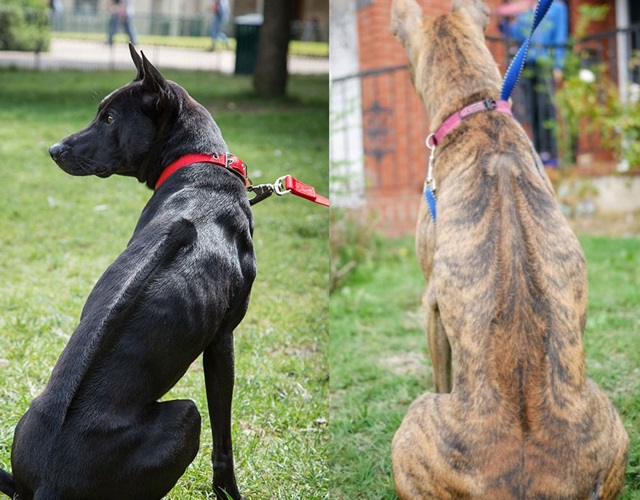
The distinctive reverse-growing hair ridge on the back of the Phu Quoc ridgeback dog
Overall physical characteristics of Phu Quoc dog:
– Overall shape: Slim, tall like a hunting dog.
– Head: Pear-shaped skull, slightly wrinkled forehead. Muzzle is half the length of the head, tongue has large black spots. Large, erect, clam-shaped ears. Reddish-brown eyes, black nose.
– Body: Round neck in proportion to body length, widening towards the shoulders. Deep and broad chest; slim belly. Back has a vertical swirl of fur about 3 to 5cm wide.
– Legs: Straight and compact. Feet have toes that are closed when standing like a tiger’s, toes are quite long, between the toes there is a thin membrane like a duck’s foot.
– Tail: Short, curved over the back in an arc shape, the tip of the tail almost touching the back.
– Hair: Short, stiff and shiny, covering the entire body. Curly hair only grows on the back.
2. Habits of Phu Quoc dog
Burrowing for breeding
With the ancient wild nature of hunting dogs, they often dig burrows to lay their babies in when it is time to give birth. The puppies are born with absolute safety protection from the mother dog and inherit purebred characteristics without crossbreeding. Currently, Ridgeback dogs have been purebred, raised as pets so they give birth in better conditions.
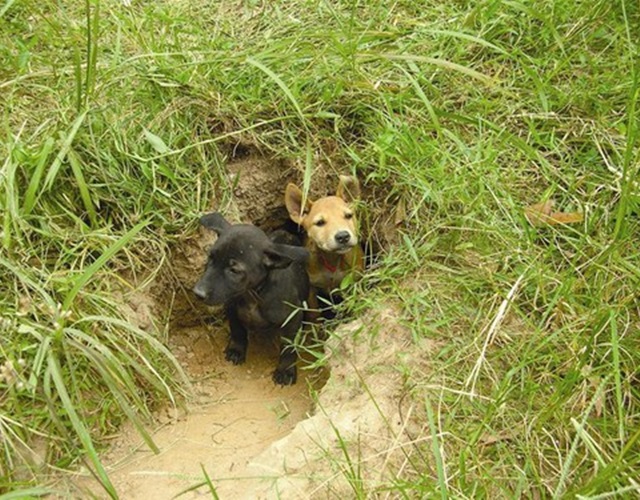
Good hunter and swimmer
Phu Quoc dogs are often taken by people to hunt because of their special ability to hunt even larger and more ferocious animals. In addition, they have webbed feet like ducks, and short, hard and smooth fur, so they swim underwater as well as otters.
Phu Quoc dogs have very sensitive noses, they can track prey even if the prey has passed by long ago. Every time they detect prey, they will corner the prey and bark to call their owner. They are absolutely loyal and will not let go of their prey until their owner gives the command “stop”.
Fight without hesitation but be friendly
They are more aggressive than other dogs, they fight without hesitation even against bigger opponents and usually win.
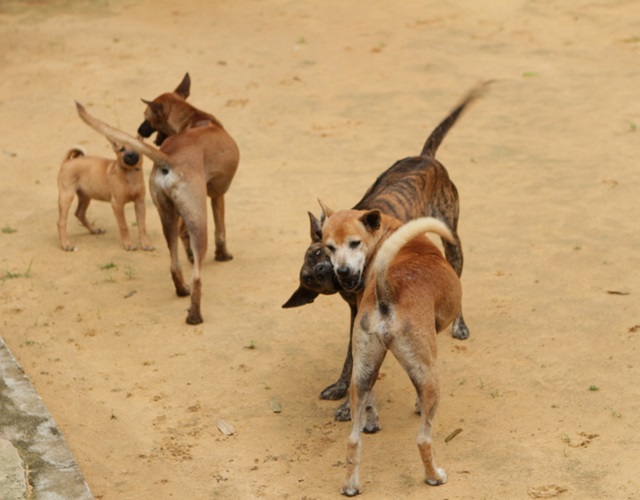
However, despite their ferocity, they are very friendly to those around them. Phu Quoc dogs are very easy to get acquainted with. When meeting any relative or acquaintance, they wag their tails happily. However, it is very difficult to touch them, even for owners who have raised them since they were young. If they are not close to them, it will be very difficult to touch them when they grow up.
3. Phu Quoc dog care
As a native breed, Phu Quoc Ridgeback has adapted to Vietnam’s weather conditions and is less susceptible to disease than Western breeds.
They are naturally hunting and running so they need to be let out to play freely in a large enough area every day. Otherwise they will get restless legs if kept in a cage for too long.
Phu Quoc Ridgebacks shed little, but you should brush them daily to remove loose hair from their bodies, and massage and check for skin diseases if they have them.
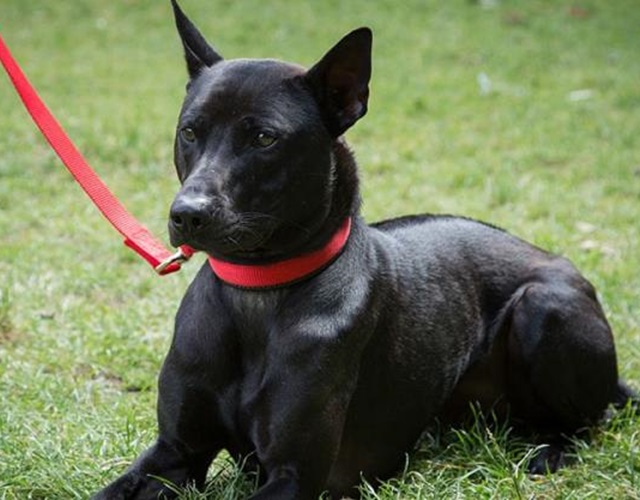
You should bathe them every 2 to 3 weeks, not too often. When bathing, trim their nails and check between their toes for bugs, bedbugs or sores.
Phu Quoc dogs are susceptible to intestinal diseases, possibly due to inbreeding, so when brought to the mainland, the mortality rate is also very high, so they need to be vaccinated when traveling long distances.
Fully vaccinate them against rabies, appropriate vaccines for dogs to prevent disease. Annual booster vaccination on schedule.
4. How to raise Phu Quoc dogs
Phu Quoc Ridgeback dogs are not picky eaters, they eat normally and grow well.
Stage from 2-6 months old
This stage is very important for puppies. Therefore, it is necessary to provide adequate nutrition for them to develop in the most comprehensive way.
– Number of meals per day: 3 meals including breakfast, lunch, dinner.
– Food: Rice mixed with shredded meat (chicken, beef, pork, fish) and a little bit of vegetables to add fiber and vitamins. In addition, you should feed your dog 2 to 3 duck eggs a week to develop the skeleton and good fur.
Stage over 6 months old
At this stage, Phu Quoc dog has basically developed fully in appearance. At this time, you can take care of it more easily than before, the number of meals is reduced to 2 or still maintained 3 meals a day depending on living conditions.
Although they are not picky eaters, they will eat whatever the family eats, but you should still provide them with enough nutrition to develop well, have a beautiful appearance, and especially provide enough when they are pregnant and giving birth to puppies.
Pre and postnatal stages of puppies
During pregnancy, the mother dog needs to be provided with enough nutrients, vitamins, and fiber such as meat, fish, eggs, and milk. After giving birth, pay attention to feeding a balanced diet of meat, fish, etc. to provide milk for the puppies. They should be cooked thoroughly and avoid feeding spoiled food as it can cause diarrhea and affect the puppies.
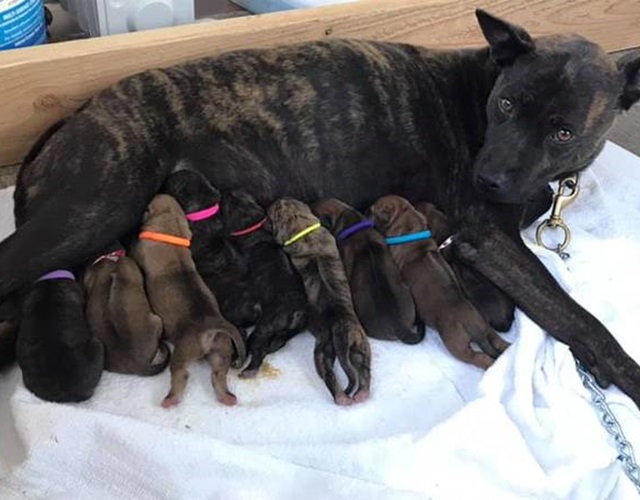
5. Phu Quoc dog price
The price of each Phu Quoc dog depends on its purity, appearance, coat color, pedigree papers, health information, etc. The price of dogs with full information is higher and vice versa.
Purebred Phu Quoc dog
The identification of a purebred Phu Quoc dog is usually based on the hair swirl on its back, its shape and its habits.
For dogs with beautiful appearance, back ridge, strong, agile and purebred with papers confirming pedigree, parents and VKA confirmation, the price ranges from 6 to 12 million VND, some even up to 1,000 USD.
In addition, the price also varies according to the coat color of each dog.
– Brindle Phu Quoc dog: This breed has yellow fur and many black stripes that are uniform and clear like a tiger’s fur. This is also the most impressive and rare fur color of the Phu Quoc breed, so the price ranges from 5 to 8 million VND/dog.
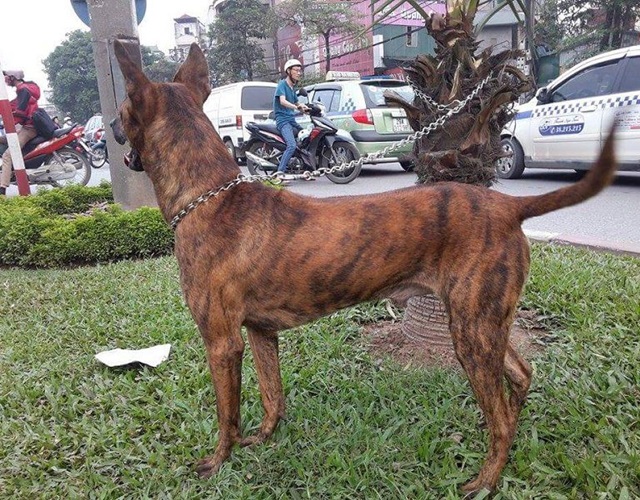
– Fire-yellow Phu Quoc dog: Price about 3 to 4.5 million VND/dog.
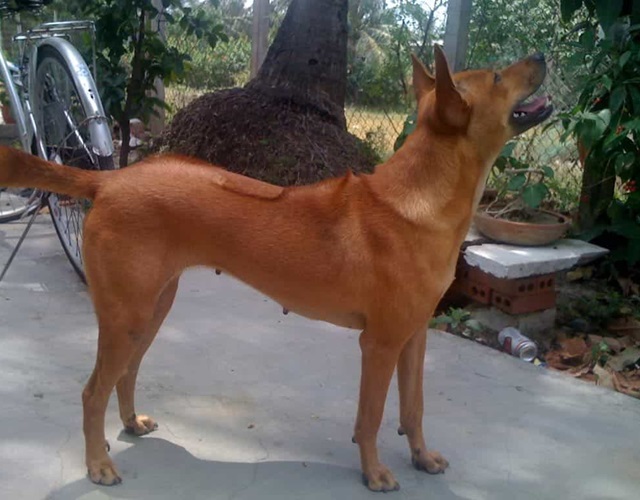
– Pure black Phu Quoc dog: Price is lower than the fiery yellow and tiger striped ones, pure black dogs with swirled fur cost about 2 to 3 million VND.
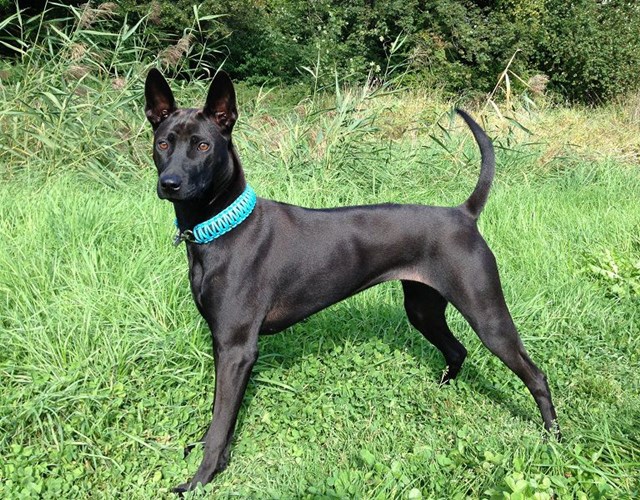
BL
